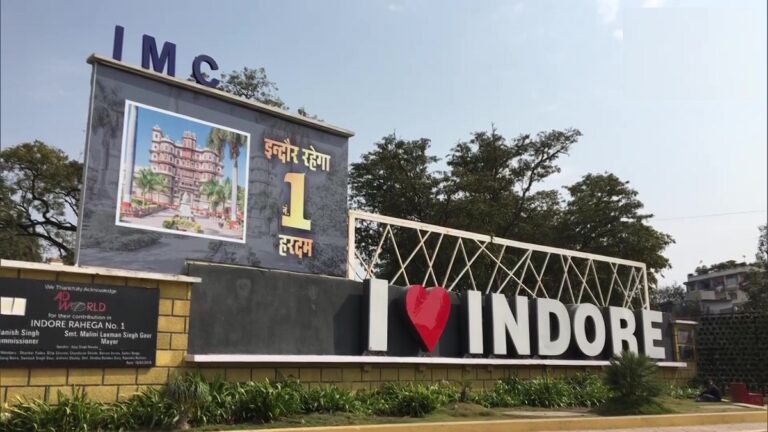Indore has again been named as the ‘cleanest city’ in India.
In the Swachh Survekshan Awards-2023, both Indore and Surat were collectively announced as the most hygienic cities in India. President Droupadi Murmu presented the awards at the Bharat Mandapam on 11 January, 2024.
Indore secured the prestigious title for the seventh consecutive time, while Surat achieved the top position for the first time, albeit in a shared capacity.
The Swachh Survekshan Awards, organized by the Union Housing and Urban Affairs Ministry, started as part of the Swachh Bharat Mission to promote cleanliness. The evaluation process focuses on what citizens think and on-field assessments.
State governments, responsible for cleanliness, update data on a system. Different aspects, like garbage collection, are checked in neighborhoods through citizen feedback. Assessors also visit homes and shops randomly to validate responses.
The criteria vary depending on the issue being examined, like checking if sanitation workers have proper support, such as identity cards and protective gear. The goal is to encourage and recognize clean practices in cities.
Why does Indore keep ranking as the cleanest city?
Indore took early action by making changes to how they clean and collect waste. They also encouraged people to adopt better habits for cleanliness.
Nagar Nigam ended the contract with the private company that was handling trash collection. Instead, they took charge of the task themselves and came up with new plans.
The paths that municipal garbage trucks followed were modified to pick up waste directly from homes, with separate bins for dry and wet waste.
Non-governmental organizations (NGOs) also played a role by going door-to-door, educating people about giving their garbage directly to the municipal trucks.
Households were charged a monthly fee for this service. In some cases, municipal workers declined to collect garbage bags from homes unless the waste was sorted into separate bins.
Daily, the city collects 692 tonnes of wet waste, 683 tonnes of dry waste, and 179 tonnes of plastic waste using 850 specially designed vehicles with compartments for bio-waste like diapers. The segregated waste is gathered from households in six categories at their doorstep.
Addressing the challenge of legacy waste accumulated over years, Indore successfully cleared and treated nearly 13 lakh metric tonnes at the Devguradiya ground in about six months. Achieving a five-star rating in Swachh Bharat requires treating 75% of waste at the dumping site.
Creating Awareness and building habits at the Grass Root Level Among the Citizens
Former Mayor Malini Gaud attributed the city’s transformation to citizen engagement. Conducting around 400 meetings and administering cleanliness oaths to over four lakh people in a year, Gaud aimed for active public participation. The Indore Municipal Corporation also implemented spot fines of Rs 250 to Rs 500 for actions like spitting, open urination, or littering. Gaud, determined to deter offenders, even proposed public shaming by publishing names in newspapers and broadcasting them on radio, personally issuing fines on multiple occasions.




